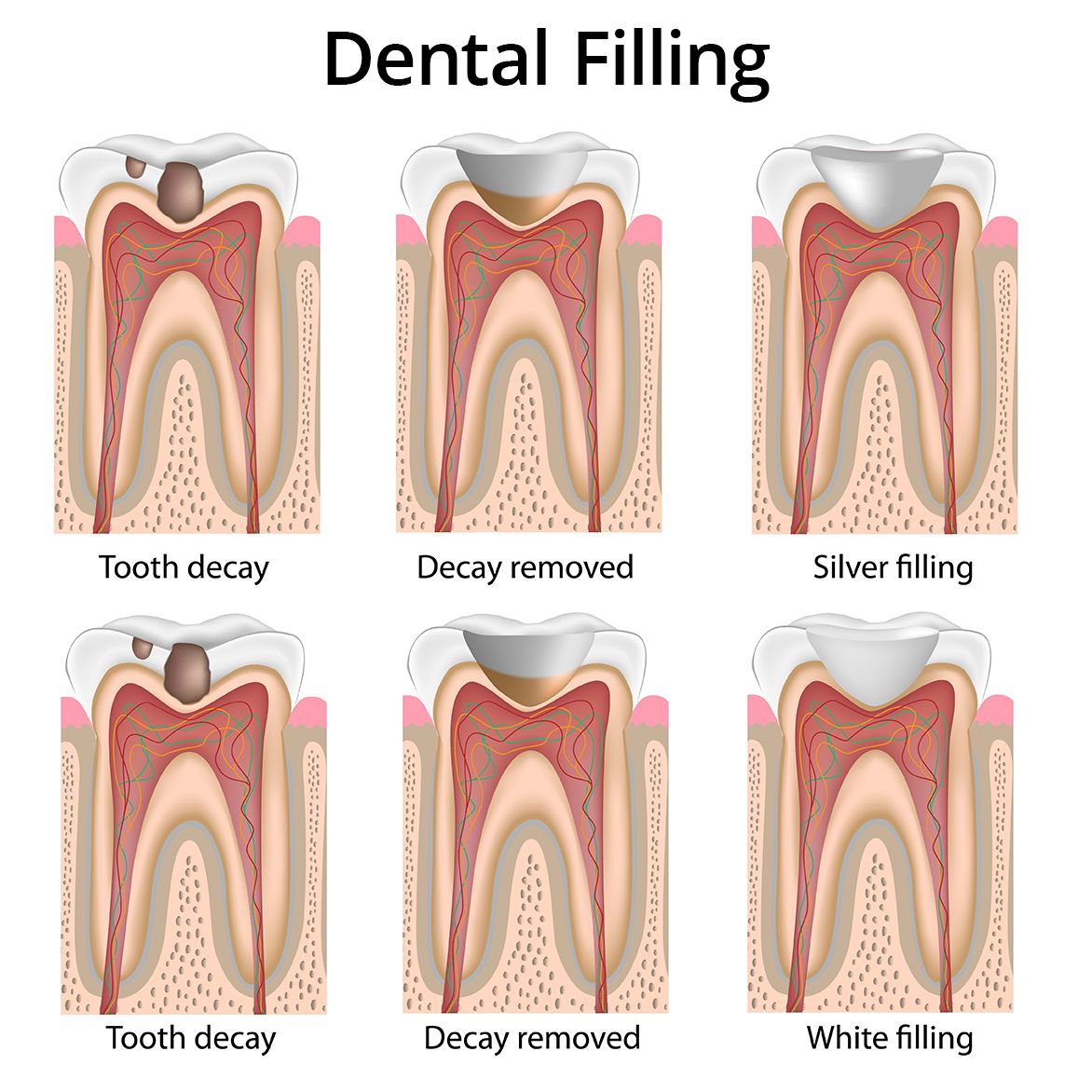Treatment for Cavities
 Dental cavities are small holes that can develop in the surface of the teeth as a result of bacteria, plaque, and tartar buildup. Once a dental cavity develops, it won't heal itself, so it's important to seek treatment right away. Restorative dentistry treatments can repair the damage caused by dental cavities and prevent further damage. At Heringer Dentistry, we offer aesthetically pleasing treatments, like tooth-colored fillings, to restore your smile. To learn more about treatment for cavities, contact our Bismarck practice today.
Dental cavities are small holes that can develop in the surface of the teeth as a result of bacteria, plaque, and tartar buildup. Once a dental cavity develops, it won't heal itself, so it's important to seek treatment right away. Restorative dentistry treatments can repair the damage caused by dental cavities and prevent further damage. At Heringer Dentistry, we offer aesthetically pleasing treatments, like tooth-colored fillings, to restore your smile. To learn more about treatment for cavities, contact our Bismarck practice today.
Treatments for Dental Cavities
Dental cavity treatment includes the removal of any decayed, damaged portions of the affected tooth. The cavity is then filled to maintain the strength of the tooth and prevent further decay. In the past, silver fillings were the most common treatment for dental cavities. However, they are not the most cosmetically pleasing and can actually damage the teeth over time. Silver fillings expand and contract when in contact with temperature fluctuations. This can lead to fractures within the treated teeth. Fortunately, advances in dentistry have led to safer, more cosmetically appealing cavity treatments, like:
- Tooth-colored Fillings: Tooth-colored fillings are one of the most cosmetically appealing options for dental cavity repair. Tooth-colored fillings are custom-made of composite resin to match the color of the surrounding tooth for a perfect match. Tooth-colored fillings can even be used to replace old silver fillings to restore the smile's appearance.
- Inlays and Onlays: Inlays and onlays are another tooth-colored option for dental cavities. Made of porcelain, inlays and onlays offer a seamless blend with the surrounding teeth. Inlays are specifically used to treat cavities within the cusps of the molars and onlays are used when damage is more extensive, going beyond or more cusps.
- Porcelain Dental Crowns: For patients with large cavities, porcelain dental crowns are often a suitable treatment option. Dental crowns are custom-made, tooth-shaped restorations that completely encase damaged teeth. They may also be used to reinforce teeth weakened by large fillings. Large fillings can leave the treated tooth vulnerable to breakage.
Preventing Dental Cavities
You can help prevent dental cavities from developing by practicing good oral hygiene and seeing your dentist for regular check-ups and cleanings. Follow these tips to help prevent cavities:
- Brush at least twice a day, every day
- Be sure to brush for a full two minutes
- Floss at least once a day, being sure to floss along each side of each tooth
- Avoid sugary, acidic foods and drinks that can increase the risk of cavities
- Rinse your mouth with water after meals and between brushings
- Chew sugar-free gum after meals to help remove plaque and food remnants
- See your dentist for regular check-ups and professional cleanings
- Seek treatment at the earliest sign of tooth decay, such as increased dental sensitivity or pain
Schedule a Consultation
Don't neglect your oral health. If you suffer from dental cavities, it's important to seek treatment before the damage becomes severe. To find out which treatments are right for you, we welcome you to schedule a consultation with our team today.


